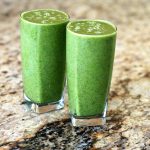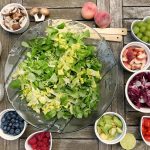A vegan diet exclusively comprises of plant-based foods, implying that it excludes all consumption of animal-based products like eggs, dairy, and meat. Since animal-based foods are usually high in fat and calories, getting rid of them could potentially aid in weight loss for some individuals.
This article explores the connection between adopting a vegan lifestyle and shedding pounds. It covers recommended food choices and possible hazards, as well as some pointers for those seeking to slim down with a vegan eating plan.
Are vegan diets good for weight loss?
Studies indicate that individuals who adopt a vegan diet typically exhibit a reduced body mass index (BMI), suggesting that a vegan eating pattern may facilitate weight reduction, or that those who choose to follow an animal product-free diet may be more inclined to prioritize their weight management.
Despite limited research, some studies have evaluated the impact of a vegan diet on weight reduction and have proposed that adhering to this diet may facilitate weight loss.
In 2016, a study was conducted to compare weight loss among individuals following different diets such as vegan, vegetarian, semi-vegetarian, and omnivorous over a period of 6 months. The findings revealed that those on a vegan diet shed more pounds as compared to other groups. Furthermore, their intake of saturated fats also reduced.
In 2016, a review of 96 studies on vegan and vegetarian diets found that plant-based diets were more successful in achieving weight loss than diets that included meat.
Participants who followed a vegan or vegetarian diet experienced additional health benefits such as decreased cholesterol levels and reduced cancer risk.
According to a study conducted in 2015, a vegetarian diet containing high levels of vegetable fats can enhance metabolism. Consequently, individuals following a vegetarian or vegan diet may burn more calories when inactive, which can improve their weight loss endeavors.
A major worry associated with any program designed for shedding pounds is the likelihood of adherence by the individual. A lot of individuals quit dieting within a short period of a few days or weeks, and a few of them gain back the weight lost due to resorting to their former eating habits as soon as the diet comes to an end.
Although planning a vegan diet may appear challenging, a study conducted in 2015 indicated that individuals were equally inclined to adhere to a vegan diet as they would be to other diets.
Despite not strictly following their diet, vegans still lost more weight than non-vegans who did not fully adhere to other weight loss diets, according to the study.
Are vegan diets healthful?
A vegan diet excludes numerous high-fat, high-cholesterol, high-calorie, and saturated fat-rich foods.
Vegan diets promote the consumption of fresh, unprocessed foods as a way to avoid animal products frequently found in processed or pre-packaged foods.
Numerous health advantages have been linked with vegetarian and vegan diets as documented by research, which encompass:
- lower rates of cancer
- reduced risk of ischemic attack or a “mini-stroke“
- reduced inflammation
- lower cholesterol
- lower blood glucose
- lower risk of diabetes
- decreased risk of cataracts
Despite the benefits of vegan diets, individuals may face certain health obstacles. Vitamin B-12 is commonly found in animal-based foods, leaving vegans to discover alternative sources such as:
- fortified cereals
- fortified plant milk, including soy, almond, and oat
- nutritional yeast
- some meat substitutes
- supplements
If vegans do not consume sufficient amounts of foods that are rich in iron, vitamin C, calcium, vitamin D, protein, and omega-3 fatty acids, they might experience deficiencies in these nutrients.
Purium Products That Provide Vitamin B12
- Cocoa Mint Spirulina
- Spirulina Powder
- Daily Fiber Original
- Daily Fiber Caramel Apple
- Epi-Genius Family
- Power Shake Original
- Power Shake Apple Berry
Best Vegan Foods for Weight Loss
Including the foods mentioned below in a vegan diet can prevent nutritional deficiencies and keep individuals satiated.
- Soy, quinoa, and tempeh, which are vegan sources of protein.
- Soy and almond milks, which are rich in vitamin D.
- Nuts and seeds, which are high in omega-3 fatty acids.
Can a vegan diet cause weight gain?
Weight gain can occur with any type of diet, even a vegan one, as the substitution of meat or dairy items with caloric processed foods can lead to an increase in weight.
Depending solely on starchy vegan carbs like pasta and bread for everyday meals is convenient, but it’s crucial to mix it up with protein-rich alternatives such as homemade vegan burgers, tofu scrambles and beans. While carbohydrates are necessary, it’s essential to have a variety of them.
With the rising popularity of veganism, more and more vegan junk food is becoming readily available such as cakes, candies, and ice cream. Although indulging in a treat every now and then is acceptable, those following a vegan diet must remember that just because something is vegan does not necessarily indicate that it is nutritious.
Is It Easier to Lose Weight as a Vegan?
It varies according to your dietary habits. For example, consuming fatty, calorie-rich fast food on a daily basis means that you may shed pounds by altering your food choices to a vegan diet (and your body would likely benefit from the cleansing process!).
To effectively lose weight while adhering to a vegan diet, you should consider adjusting your food choices to include more nutritious options and monitoring the amount you consume. It’s worth noting that as most vegan foods are unrefined, they are relatively low in calories but high in essential nutrients, which makes it simpler to shed pounds compared to a diet filled with sugary protein bars or other processed items.
Why Are You Not Losing Weight on a Vegan Diet?
There are a few reasons why you might not experience weight loss while following a vegan diet. One potential factor is your selection of foods. It’s important to keep in mind that although many people associate the term “vegan” with healthiness, this doesn’t necessarily mean that everything that falls under this category will be beneficial for shedding pounds.
Despite being vegan, there are still processed foods that are available. A significant number of them come with concealed sugars and unhealthy fats. It is advisable to opt for fresh foods and always confirm the ingredients listed on the package.
It is possible that you are not consuming adequate food, which could be a problem. Although it may seem absurd since a reduction in food intake should aid in weight loss, your body requires specific nutrients in a well-balanced diet. If you do not consume enough, it can adversely impact your thyroid and metabolism, and you may end up gaining weight. Maintaining a food journal and setting a target for daily calorie intake is a fantastic way to stay on track and be responsible for your eating habits.
Portion control is the primary factor that prevents weight loss on a vegan diet. Several individuals believe that as they are consuming healthier food, they can eat more, leading to weight gain. Continue reading to discover effective approaches for managing portions.
How do Vegans Lose Weight Fast?
Losing weight requires patience and time, irrespective of the diet or weight loss plan you follow. Rapid weight loss typically pertains to water weight loss. While being a vegan may quicken weight loss, it is vital to remember that it is a slow process. To initiate a vegan diet for weight loss, adhere to the below-mentioned guidelines.
How to Start a Vegan Diet for Weight Loss
CUT BACK ON YOUR DAILY CALORIE INTAKE
Simply put, weight loss is achieved by burning more calories than you consume. Monitoring your daily calorie intake is key, and one method of reducing consumption is to limit fatty oils, nuts, and other high-calorie foods. Vegans commonly go wrong by consuming excessive amounts of high-fat foods like avocados and nut butter. Although both items are nutritious in reasonable quantities, they are calorie-dense and can impede calorie deficit goals.
PORTION CONTROL
Although I may have mentioned this multiple times before, it’s crucial to keep in mind. Don’t assume that just because a food is vegan, you can consume an excessive amount of it. Ensure that your meals and snacks are appropriately portioned to a healthy amount. Establish a calorie, fat, or similar goal for each day and adhere to it.
MEAL PREP HELPS!
Creating a vegan meal prep plan makes all the difference! Having your food ready to go for the week or even for the next day helps with self-control and portion sizes. It also just makes your life easier during the week! Using an app such as Lasta can help you easily plan healthy and nutritious meals while keeping track of your daily goals. If you have everything made and portioned out, you’re also less likely to veer off your diet and eat something that probably won’t aid your weight loss goal. In addition to prepping, try keeping a daily food journal to hold yourself accountable.
READ THE LABELS
Reading through the ingredient list of every purchase is a must, even if it’s labeled as vegan, as it may contain processed ingredients and concealed fats and sugars, causing weight loss to become more difficult. Opt for whole, low-calorie foods whenever possible and evade vegan snack foods such as cookies and chips.
PROTEIN IS IMPORTANT!
Ensuring sufficient protein intake on a vegan diet can pose challenges, yet it is a vital component that helps curb hunger and prevent excessive snacking. To avoid potential weight gain obstacles, it is critical to consume adequate protein each day. Inadequate protein consumption may decelerate your metabolism, leading to weight loss difficulties.









